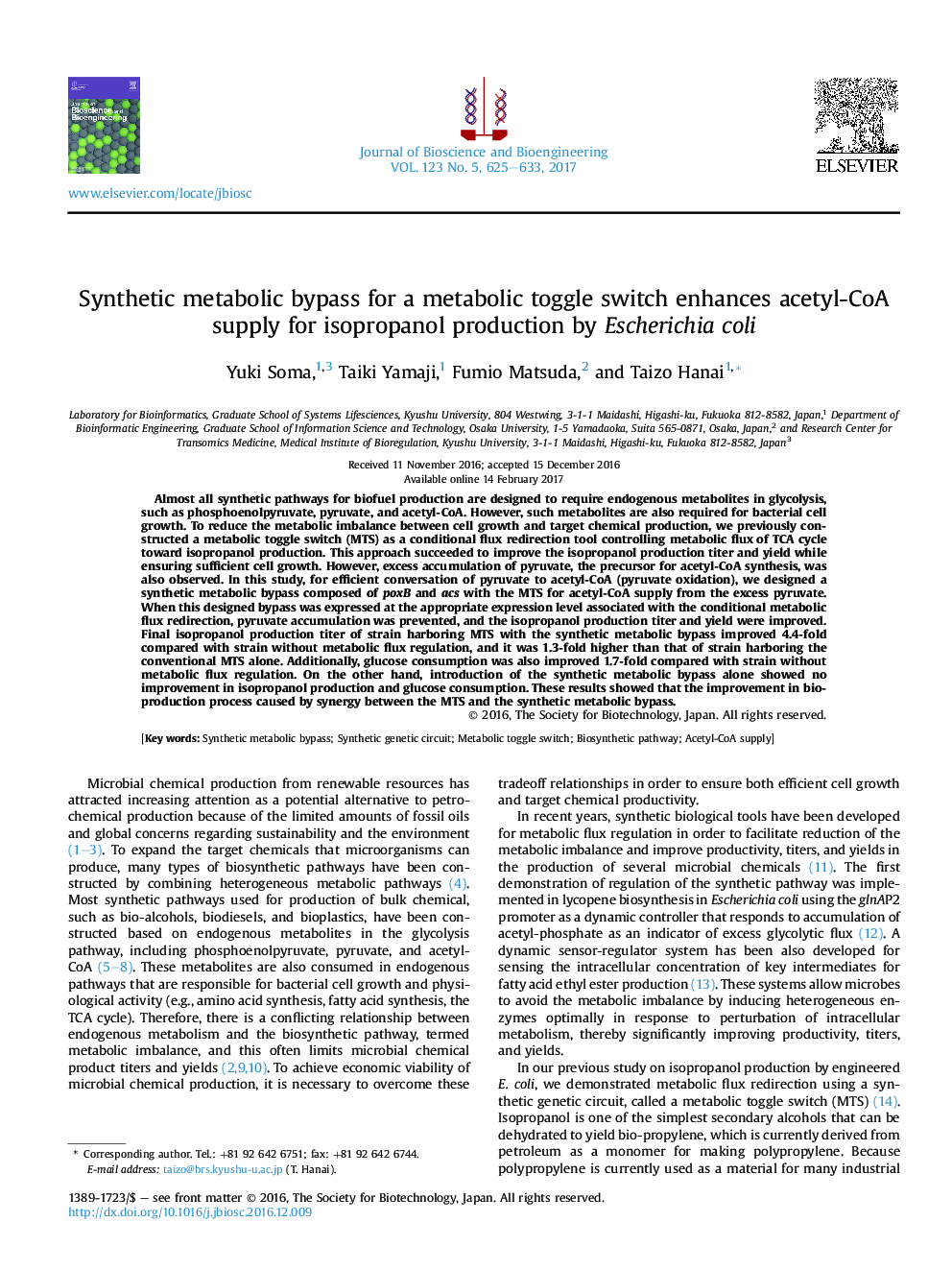| Article ID | Journal | Published Year | Pages | File Type |
|---|---|---|---|---|
| 4753374 | Journal of Bioscience and Bioengineering | 2017 | 9 Pages |
Almost all synthetic pathways for biofuel production are designed to require endogenous metabolites in glycolysis, such as phosphoenolpyruvate, pyruvate, and acetyl-CoA. However, such metabolites are also required for bacterial cell growth. To reduce the metabolic imbalance between cell growth and target chemical production, we previously constructed a metabolic toggle switch (MTS) as a conditional flux redirection tool controlling metabolic flux of TCA cycle toward isopropanol production. This approach succeeded to improve the isopropanol production titer and yield while ensuring sufficient cell growth. However, excess accumulation of pyruvate, the precursor for acetyl-CoA synthesis, was also observed. In this study, for efficient conversation of pyruvate to acetyl-CoA (pyruvate oxidation), we designed a synthetic metabolic bypass composed of poxB and acs with the MTS for acetyl-CoA supply from the excess pyruvate. When this designed bypass was expressed at the appropriate expression level associated with the conditional metabolic flux redirection, pyruvate accumulation was prevented, and the isopropanol production titer and yield were improved. Final isopropanol production titer of strain harboring MTS with the synthetic metabolic bypass improved 4.4-fold compared with strain without metabolic flux regulation, and it was 1.3-fold higher than that of strain harboring the conventional MTS alone. Additionally, glucose consumption was also improved 1.7-fold compared with strain without metabolic flux regulation. On the other hand, introduction of the synthetic metabolic bypass alone showed no improvement in isopropanol production and glucose consumption. These results showed that the improvement in bio-production process caused by synergy between the MTS and the synthetic metabolic bypass.
